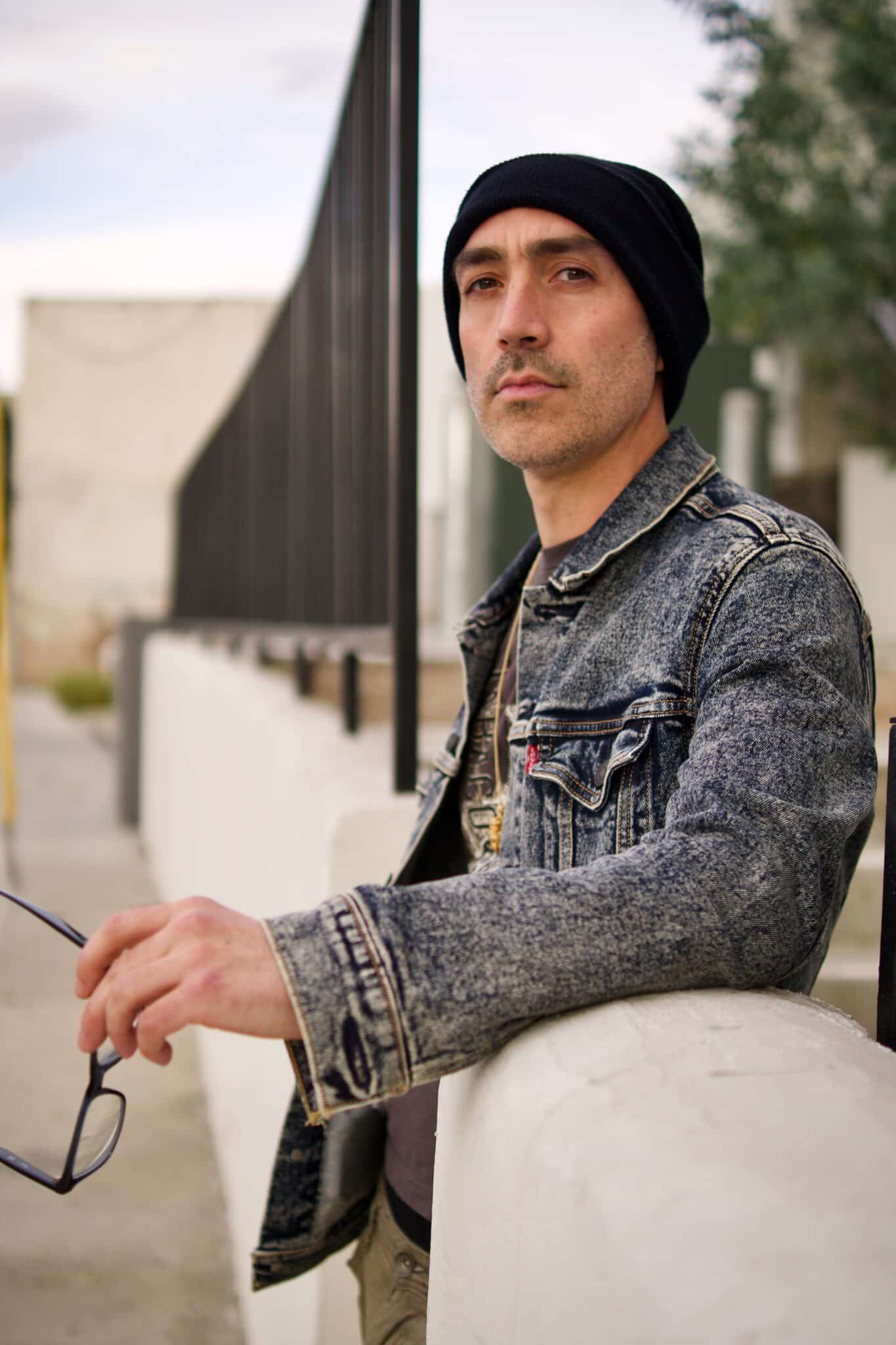California Roots Festival in Monterey, CA, is one of the highlights of the year for many reggae fans, including myself. Beyond the opportunity to experience numerous top shelf acts as well as exciting up-and-coming artists over the span of a jovial long weekend, the event provides the chance to spend time with friends from afar while making new ones. I also relish connecting with artists and industry professionals that stop by the Rootfire/Movement/Elovaters camp.
One such person I had the pleasure of meeting at this past festival was L.A.-based artist, Bobby Hustle. Over a prolific thirteen-year career, the Seattle-born musician has carved out a name for himself in the international reggae community, performing in Japan, Russia, Germany and Italy, contributing songs to over 60 different riddims, releasing five EPs and a full-length album and collaborating with some hugely popular reggae acts including Sizzla, Lutan Fyah, Mikey General and Collie Buddz. Personally, though, he had flown under my radar until earlier this year when Alific sent me the masters for his then upcoming release, Write in on the Wall, for which I authored an Album Showcase. The LP featured Hustle on the track, “Sound of the Music,” which prompted me to look into him. I soon found myself hooked on his 2021 single with Dread Kennedy, “Cali 101.”
Hustle grew up a 35-minute ferry ride from Seattle on Bainbridge Island in Puget Sound, an island the size of Manhattan but with only 30,000 people. These days, Bainbridge has become a very wealthy place, but back in the days of his youth, it was a blend of working class families, old farm communities and up-and-coming, well-off people escaping the city.
“Nowadays, most average middle-class families have been priced off the island,” Hustle explained, “But back in the day, it was very mixed.”
Hustle’s father moved to Japan when he was five years old, so most of his younger brother’s and his upbringing was with his mother. “Even though my dad wasn’t there physically, he would check in and visit yearly. He was the one who gave me my first instrument at eight or nine years old, I believe. It was his old saxophone. With his encouragement, and to my mother’s early chagrin, I started playing and practicing. I played sax for about four years combined in elementary school and then middle school band. Then I moved on to the guitar around 12 years old.”
Hustle mentioned that he is left-handed and never had access to a lefty guitar as a kid, so he learned to play a friend’s right-handed guitar upside down. During the pandemic, he retaught himself the proper way to play, so he now can play a lefty or righty guitar – “both mediocre,” according to his own opinion.
“It was around those times that I started writing songs and lyrics. Jokes and silly ideas. I think one of my first songs was a 12-year-old’s take on the Monica Lewinsky scandal,” he laughed.
Hustle fell in love with reggae at the age of 13 through the help of his friend’s older brother’s cd collection. He and his friends were part of a small reggae-loving community on the island and in Seattle that existed in the 90s and early 2000s. By 15, he was playing drums in a reggae band on the island called Rude Vibe that played Bob Marley, Peter Tosh, Sizzla, Steel Pulse and Daweh Congo covers.
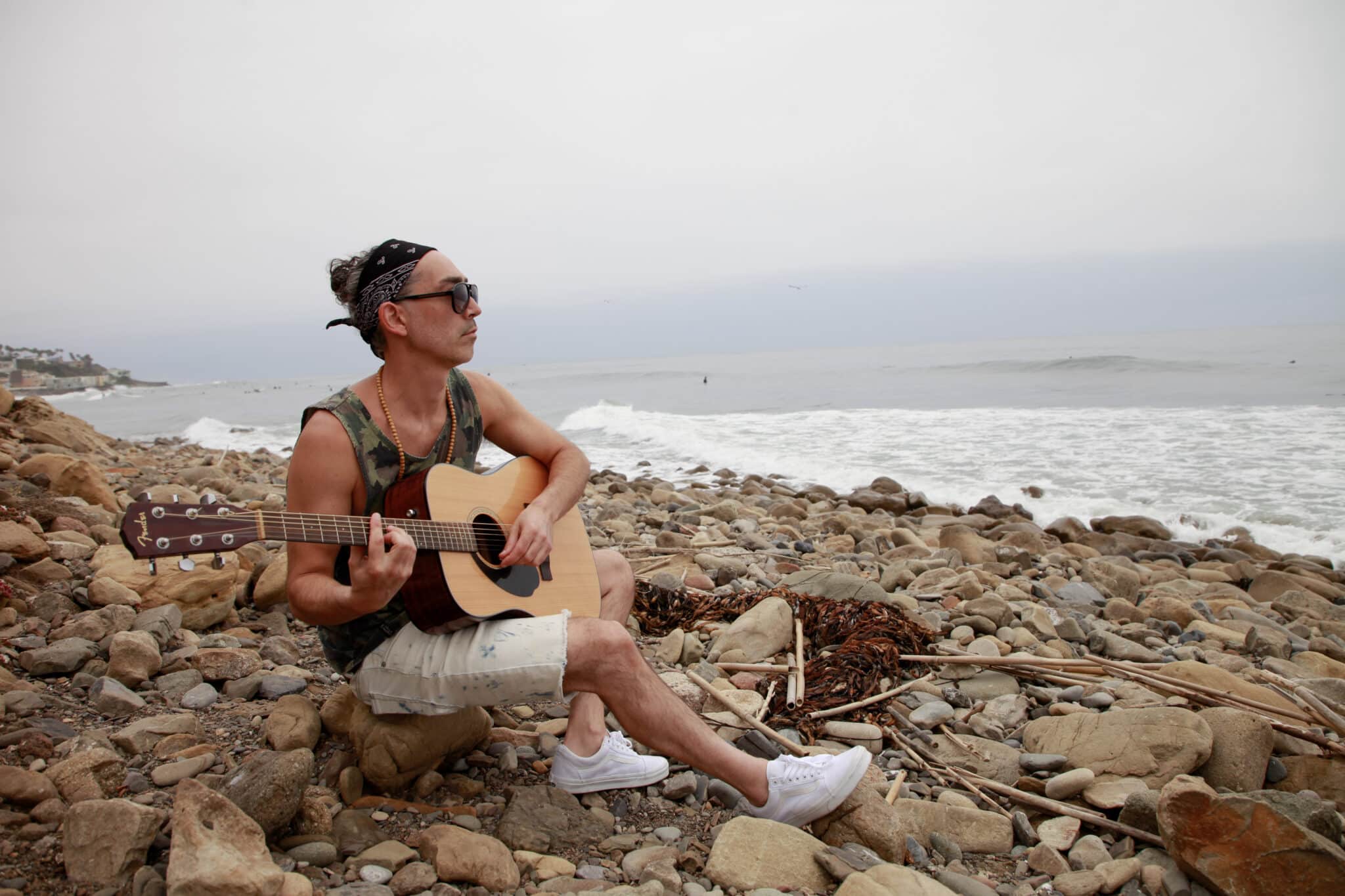 Despite its location in the Pacific Northwest, I asked Hustle if he thought growing up on an island contributed to his predilection towards reggae music. “Yes, absolutely. I remember feeling akin to the water and beach vibes. Connecting to my spirituality through nature,” he said. “But I think my personal connection with roots reggae and the island was also brought about by the affluence I saw around me. Growing up in a rental home with my single mom, I was surrounded by kids with money, but we lived modestly in comparison. I remember hearing my mom cry in her room some months when she couldn’t pay rent. Meanwhile, my neighbors were driving BMWs to high school. The contrast was stark. Even though my situation was blessed compared to so many around the world, it was enough of a different life from my friends that I was able to recognize suffering and economic class struggles at an early age. I’ve also empathized with the suffering for reasons ultimately unbeknownst to me.”
Despite its location in the Pacific Northwest, I asked Hustle if he thought growing up on an island contributed to his predilection towards reggae music. “Yes, absolutely. I remember feeling akin to the water and beach vibes. Connecting to my spirituality through nature,” he said. “But I think my personal connection with roots reggae and the island was also brought about by the affluence I saw around me. Growing up in a rental home with my single mom, I was surrounded by kids with money, but we lived modestly in comparison. I remember hearing my mom cry in her room some months when she couldn’t pay rent. Meanwhile, my neighbors were driving BMWs to high school. The contrast was stark. Even though my situation was blessed compared to so many around the world, it was enough of a different life from my friends that I was able to recognize suffering and economic class struggles at an early age. I’ve also empathized with the suffering for reasons ultimately unbeknownst to me.”
Like many American reggae artists these days, Hustle was first introduced to the genre via the music of Sublime and other reggae-rock pioneers as well as third wave ska bands. However, unlike many others who used that introduction as a springboard to delve into traditional roots reggae, Hustle instead gravitated towards popular Jamaican acts at the time such as Anthony B, Sizzla and Capleton.
“I was a frustrated kid,” he said. “I grew up modestly in an affluent community and didn’t resonate with what society was telling me. I think I was always searching for more meaning in life, and at a young age, the ‘conscious dancehall’ from Jamaica combined a rebellious message and spirituality with contemporary youthful vibes. It was different from the rock, punk and hip hop most of the other kids were into.”
Hustle is quick to point out that his “musical evolution” did not occur alone. His writing and recording partners at Loud City, Dan and MG, the studio/production team he has worked with throughout his career, “were there learning, discovering, asking questions and falling in love with the culture” beside him since day one. “We met in the 4th grade and became best friends,” Hustle recalled. “They started collecting 7″ records from Jamaica (just before vinyl “died”) via Ernie B’s Distro and started making mix tapes (on actual cassette tapes) of the newer songs from all the contemporary artists. Now, they produce reggae and pop records and have worked with some of the biggest names in the genre. And I record and sing reggae. Feels destined to me.”
Hustle said he remembers always wanting to be a singer since childhood. “Despite my generally reserved nature in most public situations, I have always had something to say if I feel comfortable,” he laughed. “For some reason I feel comfortable in the booth and on the stage. I think the same spirit and rebellion that I fell in love within the music keeps me going and creating.”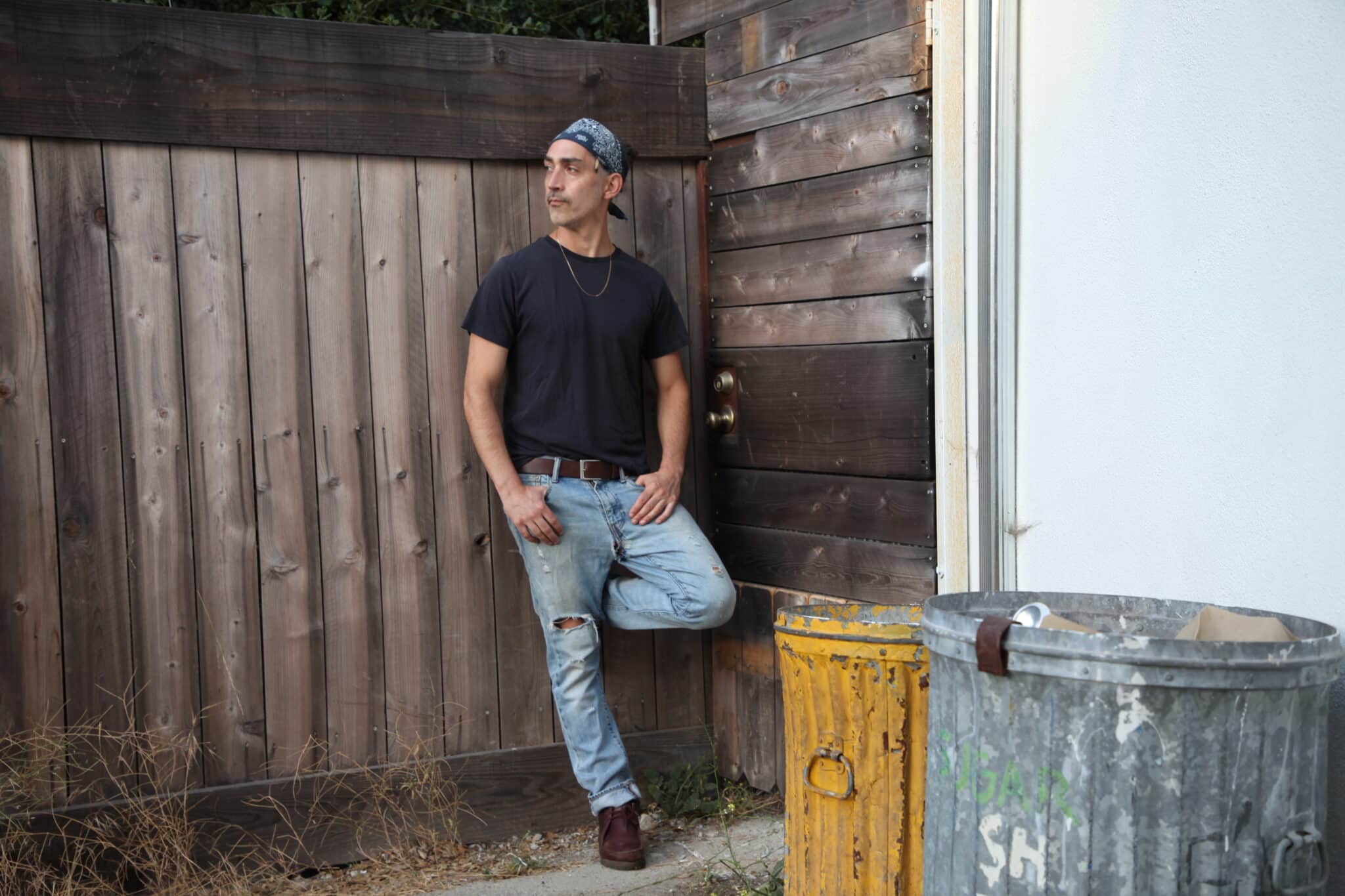
During our conversation at Cali Roots, Hustle told me about a harrowing ordeal he experienced back in 2016, when he got arrested in Costa Rica on a drug trafficking charge that resulted from a misunderstanding while he was on tour. It may not compare to heartbreaking, catastrophic instances of wrongful incarceration such as the Central Park Five or West Memphis Three, yet he had been facing significant prison time in awful conditions in a foreign country. This experience has had a significant impact on him, influencing how he sees the world and approaches life.
As the story goes, Hustle arrived in mid-January for what was supposed to be six soundsystem events. Twelve days later, while riding as a passenger in a vehicle, he and his companions got stopped at a checkpoint and the authorities found pounds of weed in their car. Although he had no knowledge of the contraband, Hustle was arrested. A few days later, his flight back to L.A. departed without him, derailing his eventual plans to link up with Jamey “Zeb” Dekofsky to start a band. (Zeb would later join Tribal Seeds later that year.)
Thanks to a great public defender who found a Central American high court ruling that set precedence to let him out because he didn’t kill anyone, after an arraignment hearing six days later, Hustle surrendered his phone, wallet and passport and was released from jail on the conditions that he and live with a Jamaican-Costa Rican family in Puerto Viejo de Talamanca and sign with the local court in Bri Bri, Talamanca, Costa Rica. Hustle explained the rationale used by the court was that since he wasn’t that much of a threat to society, it would cost more to the public to feed him and house him in jail.
“Thank God,” Hustle exclaimed, describing his brief stay behind bars. “The jail where we slept was hot as hell, underground and dark, dingy, smelled like shit. Probably 12 guys in my cell at night. We slept on mats. Centipedes, spiders, mosquitos, beetles, small lizards. The breakfast was an old, cold processed meat bread with mustard. They flushed the toilet only once or twice a day there, so they told us. It was only able to flush from the outside by the guards. It was nasty.”
Though he spoke no Spanish at the time, his friend, Jordy, who had been locked up with him, translated. Hustle said that the other inmates were fascinated that he was a reggae artist from California.
“It saved me honestly,” he said. “I was both terrified and still a little in shock while in jail. I cried hard the day my flight left without me. I cursed out the homie who got me into it. I worried about my mom worrying about me. I knew I had fucked up big time.”
After leaving jail, Hustle sat in the shallows of the Caribbean and shed more tears – this time, however, of relief, gratitude and joy. As the days, weeks and months went by, stuck in Costa Rica anxiously awaiting his fate, he battled resentment, self-pity, shame and regret. Eventually, he said, he learned to find balance and started exercising daily. “I had to accept the situation I was in every day, but still keep my faith and determination on freedom. I was stuck in a mental prison of sorts, because everyone around me was living in paradise, and I was trying not to fixate on a 8-15 year sentence for something I had nothing to do with.”
In July, he had a pretrial where the judge determined the case was too complicated and had to go to trial. “Up to that point my bags were still packed thinking there was a chance I’d go home any day possibly,” said Hustle. But at this point, the court told him to prepare to be in Costa Rica for a few years.
In February of 2017, Hustle moved from the Caribbean coast to San Jose on the behest of his lawyer with the idea that the coast was full of drug running and partying and he needed to distance himself from that vibe however he could. This forced him to learn Spanish a bit and figure out how to get by in the big city. “I found a nice community of people who I consider family. They found me a place to stay and helped me get around initially,” he recalled.
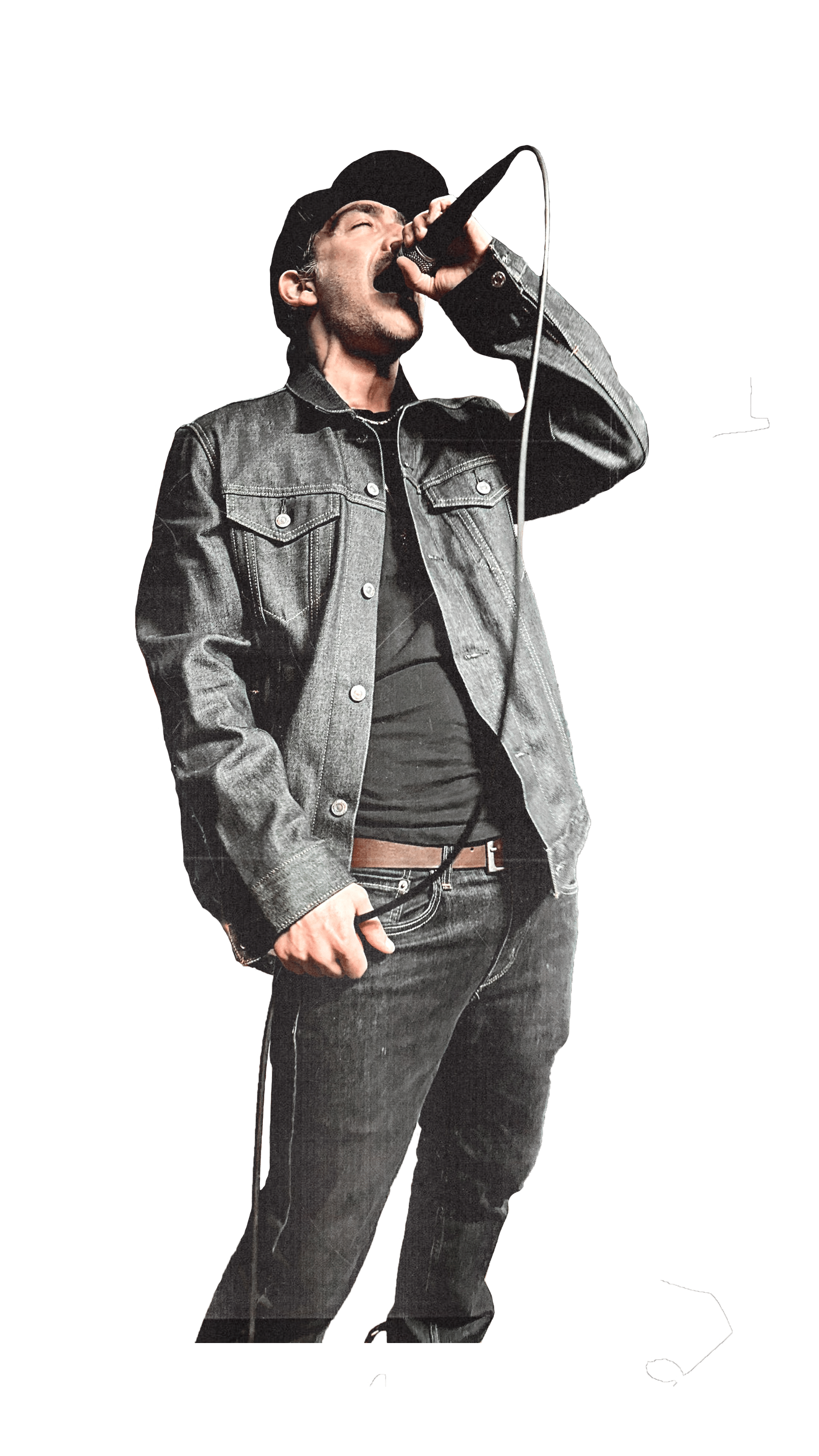 On Dec. 15, 2017, after 22 months, they finally had the trial. According to Hustle, the prosecutor’s argument was so bad that all three co-accused were found not guilty of all charges. Eight days later, Hustle flew home in time to celebrate Christmas with his family.
On Dec. 15, 2017, after 22 months, they finally had the trial. According to Hustle, the prosecutor’s argument was so bad that all three co-accused were found not guilty of all charges. Eight days later, Hustle flew home in time to celebrate Christmas with his family.
As awful as this experience had been, Hustle recognized a silver lining. “The amount of personal growth I have experienced and will continue to experience because of that time in Costa Rica is hard to put into words,” he began. “In a way, I was forced to slow down and reflect. My body was tired from touring and self-managing and stress, etc. The universe told me to stop. I tried not to listen to her a few times in the previous months. Eventually, she gave me no choice in the matter.
“I learned humility. It is said, ‘Man makes plans and God laughs.’ I felt that one!” he laughed.
Hustle continued to reflect: “I learned forgiveness. Forgiveness for myself to get into that situation. Forgiveness for the one who’s ganja it was and the predicament and subsequent choices he made that kept me there.
“I learned it was okay to ask for help. The family who took me in and gave me food, shelter, family and guidance in a strange land. They are forever my family. My family back home, who supported me emotionally and financially at times.
“I learned that I really, really, really love reggae music and I will risk my future to stay and fight charges in foreign land just so I can continue to travel the world singing my songs and sharing my message.”
Many nights, Hustle questioned his own sanity. He contemplated fleeing the charges, but even if he made it home, he would be a free man only in the U.S. He would be on Interpol’s no-fly list, apprehended at any attempt to leave the country and sent back to Costa Rica for an automatic 20-year sentence without a trial. “That seemed just as crazy as staying to fight the charges,” Hustle said. “As an innocent man, and my mother’s stubborn son, I stayed to defend my innocence. That taught me perseverance like nothing else had before. Now, when I have bad days, I can look back at the same day on the calendar and reflect about my time in Costa Rica, and the adversity I had to overcome then to have this ‘bad day’ now. It’s humbling. Perspective is good.”
At Cali Roots, our discussion shifted from Hustle’s past to his future, and he expressed his excitement about his forthcoming album, Proof of Concept. When he sent me the masters just over a month later, upon first listen, I immediately recognized that the music differed from the type of reggae I am typically drawn to. Nevertheless, right off the bat, several tracks stood out to me. By the third listen, I started to really dig it and songs were getting stuck in my head, which usually signifies music with great hooks. By the fifth or sixth listen, I became downright addicted to the album and couldn’t wait for it to release so I could write about it and share it with friends.
Fans of Bobby Hustle will likely recognize many of the songs on Proof of Concept because eight of the 14 tracks have been released as singles, but for those unfamiliar with this rising artist, now is a great time to board the Hustle train. Clearly, Hustle and his Loud City camp have perfected the craft of writing and producing catchy, commercially viable reggae music. From top to bottom, almost any song on Proof of Concept could qualify for heavy rotation on island airwaves across the globe, on cruise ships throughout the tropics, or at hotel pools from Miami to Hawaii.
A dive into Hustle’s discography will reveal an evolution from his earlier sound of heavily produced, dancehall-oriented music featuring a lot of voice modulation to something more organic and genuine. “This project definitely shows my growth and maturation as a songwriter and Loud City as producers and musicians,” Hustle agreed. “It is rootsier than the older projects in the sense of my topic matter – less ganja and girls, more introspection, self-therapy, heartbreak and maturity. I’m not talking from the perspective of a 20-something kid anymore. My music is all about having fun, for sure, but it’s also deeply rooted in self-reflection and perseverance over obstacles. Mind over matter. Anything is possible. Hustle.”
Continuing, he said, “A lot has happened since the release of my first album, It’s the Hustle, in 2015. I have had plenty of time alone, whether it be stuck in Costa Rica or stuck at home in L.A. during the pandemic. I have tried my hardest to embrace my authentic self. This album is that. An American kid who grew up loving Jamaican reggae. Eventually realizing my own voice and experience are the only way to reach people meaningfully.”
Hustle said that, for years, he “emulated and looked up to” everything concerning Jamaican reggae. He toured the world in that soundsystem dancehall scene, but that reverence for “authentic” reggae often came at the cost of exposing himself to “great music and people who were doing the genre a little differently.”
Then, in 2014, Hustle met and befriended reggae-rock studs, The Movement. “That started to open my eyes to a whole world that I had previously written off as ‘bubblegum’ or watered-down,” he recounted. “Turns out, the musicianship and songwriting in the U.S. scene was top notch, just not what I was used to.”
Hustle remembers going to Cali Roots in 2014 and being overwhelmed. “I wasn’t ready for the community that I saw. In my experience in the U.S.A., I was used to little, late-night, darkly lit dancehall parties, not 20,000 fans singing word for word to SOJA at 6 pm,” he laughed. “It inspired and frustrated me at the same time. I was still locked into this idea of what reggae had to be.”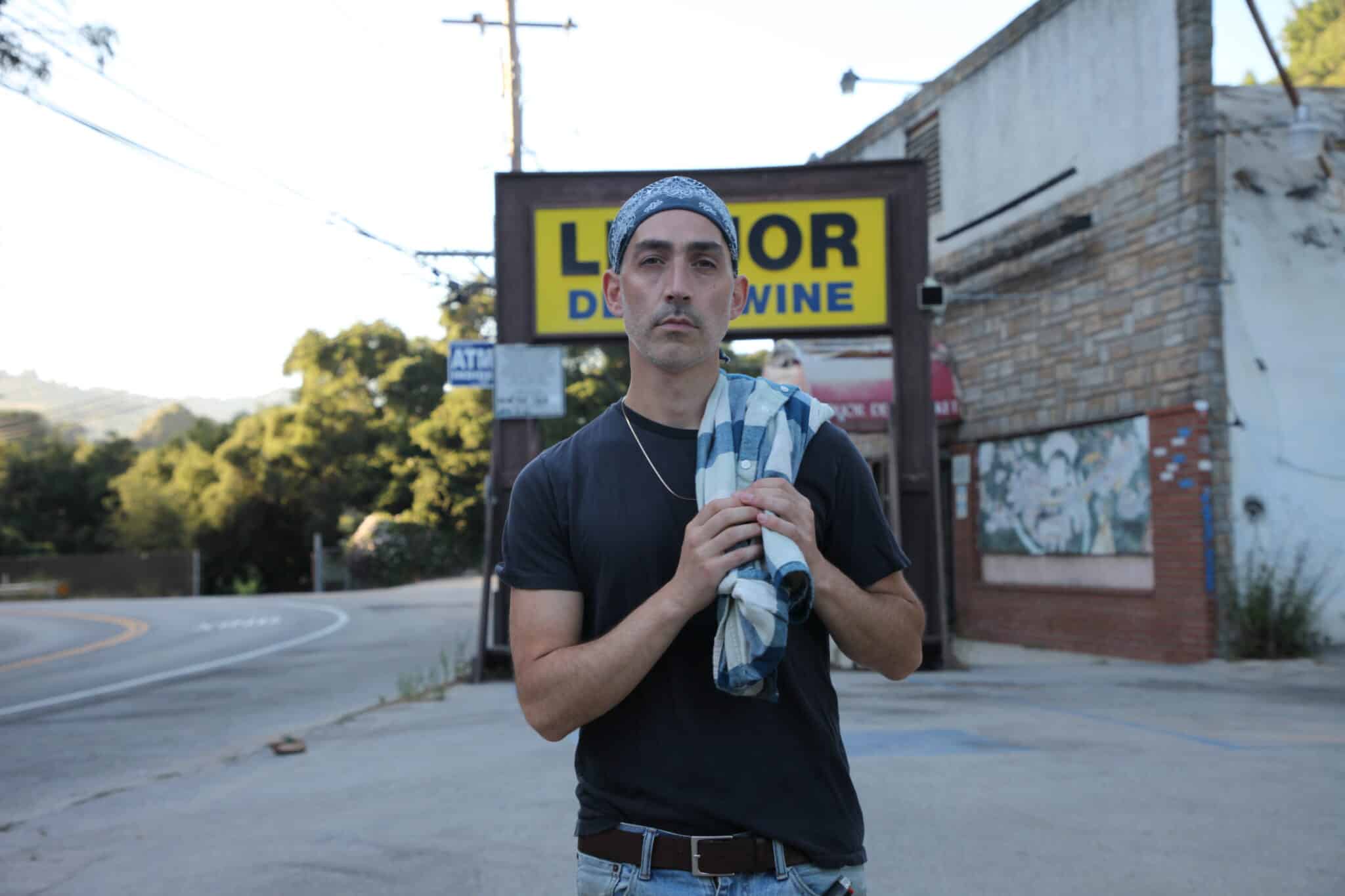
Nowadays, with humility and wonder, Hustle still considers himself a student of the genre. “I’m willing to learn and embrace new ideas and sounds, collaborate with people who have different ideas, all while bringing my original style to the thing.”
Speaking of collaboration, as evidence of how well-regarded and connected Hustle is within the Jamaican reggae community, Proof of Concept includes a number of fantastic vocal features from high level artists. Hustle said he considers all of the guest singers to be friends and people he looks up to.
“I have known Lutan since 2008. He was one of the first artists to say ‘Gwaan Bobby, yuh bad!’ and give me ratings,” he said of Lutan Fyah who sings with him on the tune “Loyal to the Soil.” Hustle said he also happens to hail him as one of his early inspirations as a teen first discovering modern Jamaican reggae. Fyah wrote all his lyrics and recorded in Jamaica after Hustle had sent him the chorus and first verse. Then, they went back and forth for the pre-chorus.
“Same for Perfect Giddimani,” he stated. “I’ve known him just as long as Lutan actually and I would say all the same things about his influence and more. He and I have a closer friendship though.” Hustle had sent him “Stay High” and asked him to sing the chorus and pre-chorus that he had written, but then write his own verse. “Giddimani brings an unmatched energy to songs and stage shows and I really love the balance we have: I have the smooth flow and he brings the fire!”
Another artist featured on the album, Koro Fyah, is an up and coming Jamaican youth who Hustle first met while visiting Kingston in 2015, now based in Los Angeles. According to Hustle, Fyah used to work with Kabaka Pyramid and Bebble Rock but now is an independent artist who happens to work closely with the Loud City team. “He came over to my place and we wrote and recorded ‘City Lights’ after a day of conversation and reasoning,” Hustle said. “Wicked flow and voice. Irie message. I’m excited for the U.S. scene to learn more about him and his talents.”
“City Lights” describes the disenchantment people feel these days when they work their asses off but still can’t get ahead. “Sometimes it seems like we are already in a dystopian society,” Hustle said about the inspiration of the song. “Staring at screens. Looking for meaning and answers in materials. Searching for signs. Following charlatans and shortsighted, greedy leaders. We need a change. The disillusionment with this current system is real.”
In the city it no pretty to be honest
It’s a pity it just sticky like the chronic
Inequity wan fi trick we but regardless
The dream no far fetched we still a reap the harvest
Downtown where the dreams are the tallest
From the sky you can see the angels falling
Yeah dem belly full but we starving
So we haffi hustle put we all in woah
– from “City Lights”
Regarding another collaborator, Hustle refers to Mikey General, who is featured on the track, “Mountain,” as a “living roots reggae legend” who he’s been a fan of for as long as he can remember. “I have memories of watching him do backflips with Luciano on stage at Nectar Lounge in Seattle about 12 years ago. Such a pleasure to work with him.” In fact, as a youth in 2009, Hustle had met the Jamaican singer in a dubplate session, but they reconnected in 2021 to make “Mountain.” Again, Hustle wrote the chorus and sent it to him. He sang the lyrics and also wrote his own verses. Hustle said, “A great honor to work with him. His voice and timbre are classic.”
“Mountain” was an early favorite song of mine from this LP, in part due to the references to Jah. As someone who grew up on traditional roots reggae, I have always internalized Rastafarian messaging as a way to embrace my own spirituality, making “Mountain” even more enjoyable as a celebration of the universe shining good fortune down upon me and mine.
In God we trust not no almighty dollar
And I’m just a man not a biblical scholar
But I know the Truth with a capital T
Is the love that Jah give unto you and me
Taller than the highest mountain
Deeper than the deepest sea
Wider than the Universe
That is Jah love to me
He’s so incredible
Does the impossible
Always been in my life
Working his miracles
– from “Mountain”
As a reggae artist with many ties to Jamaica, I wondered how Hustle viewed Rastafarianism and whether he integrated any of its ideology within his own views of the universe. “Although I talk about all sorts of secular topics, I have a great reverence for Rastafari and Rasta culture,” he revealed. “The teachings of Rastafari have greatly influenced my life and day to day practices for years and years. Part of my maturation as a person and artist was in learning to find my balance in how I express my love for Rastafari both inwardly and outwardly. One of my Rasta bredren says I’m an ‘undercover Ras,’ because I don’t wear locks or red gold and green, really, but I do include many Rasta ideas in my lyrics, and I love Rastafari livity.”
Hustle further pointed that sometimes his references are overt, like in “Mountain,” but other times they are less obvious, such as in songs like the first track, “Rock my Boat,” where he talks about keeping his head above water, being a lion, not a lamb for slaughter – alluding to proverbs or Biblical nods, etc. “What I aspire to do is to share Rasta ideas, which I believe to be rooted in peace, love and rebellion against a wicked system built on the oppression of poor people, while still being my authentic self and appealing to people who know nothing about Rastafari,” he explained. “I am not Jamaican and never will be, so I will always consider myself a guest in this reggae music and culture. It is a duty, I believe, to pay homage. When I use patois, I use it correctly and sparingly to annunciate a point. I use it where it sounds better. But I respect the language. I study it. Same and more for Rasta.”
I’m not going down
Riding on the high seas
And I will not drown
No matter how they try me
I’m at the mercy of the tempest
Although it might seem relentless
There’s always a calm after the storm
So I know I gotta carry on
I had to hold my head up
Above the water
I won’t be no lamb to slaughter
I gotta keep that lion order always
– from “Rock my Boat”
Then, after further consideration, he added, “All that being said, I don’t consider myself a Rasta. I consider myself a human. Full of unknowing. I think I vibrate well with Rasta messages because I have a heart and soul that empathizes with the sufferer and downtrodden. I want to see love and peace, but I know that it takes a rebel energy to overcome our current state of affairs.”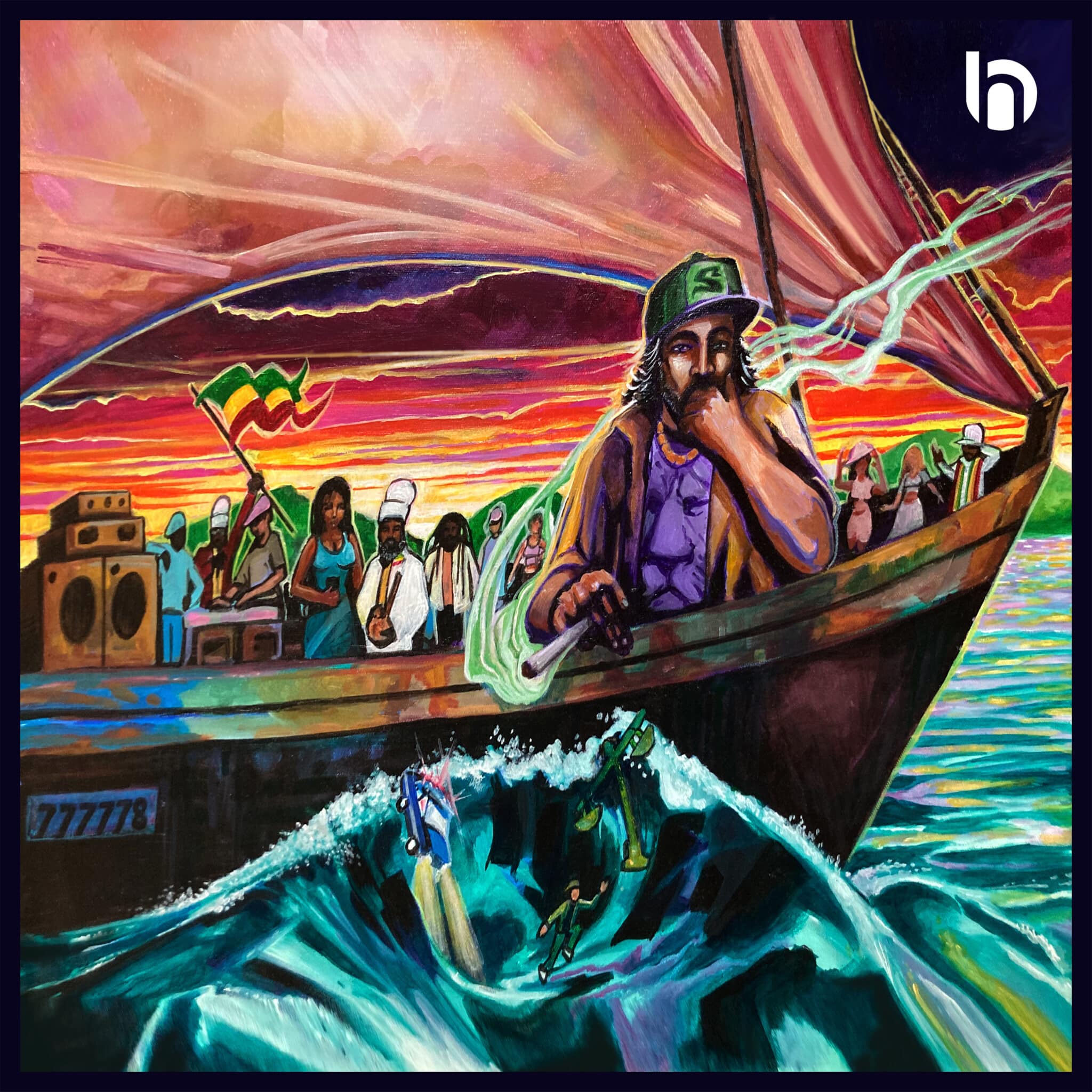
Hustle pointed out that the album artwork adds another layer of subtle Rasta imagery. “Growing up, I really loved the art on the covers of Midnite and Akae Beka’s projects,” he said. “Well, it turns out the artist who painted those pieces is a fan of mine as well. I met Ras Elijah Tafari in September, 2021, while performing at a fest in New Mexico. Elijah did the art for this project too!”
While Hustle has been extremely prolific over the years, putting out seemingly an endless array of singles, Proof of Concept has a cohesive vibe since Loud City produced all of the tracks. As Hustle stated, “It is a body of work with a feeling and a familiar soundscape. Dan and MG both have very refined ears for catchy hooks and thought provoking lyrics.”
Regarding their creative approach, Hustle disclosed that groups of songs took shape in different ways. “Living in L.A. while they are in Seattle, we did a lot of remote work. When that happens, they send me a riddim .wav file and I write the topline (vocal melody and lyrics,) then record it in L.A. and send them a demo. Then, they tell me what they like, what could change, etc. Then I record the final version of the vocals and send them the files to mix and master. Songs like ‘Free Up,’ ‘Rock My Boat,’ ‘Mash Up,’ ‘Loyal To The Soil’ and ‘Mountain’ are all examples of that process.”
Hustle said that “As Good As It Seems” “Love Me Like You Do,” “Lightning Strike” and “Right Now” were all written and recorded in the same room, but the processes were a little different. “Love Me Like You Do” and “Lightning Strike” were “created from scratch on the guitar” before the team “built a riddim around the progression.” Hustle then recorded a vocal melody and filled in the lyrics.
Finally, “As Good As It Seems” was Hustle’s own song which he had previously written without a beat in mind. “When we came into the session that day, Dan played the instrumental on iTunes and I just mumbled a couple lines,” Hustle recalled. “His ears perked up and he said ‘Yooooo what’s that? We just ran with that energy.”
In fact, when asked to choose a favorite song on the album, Hustled responded, “I’m proud of all the songs on this record. I have a hard time playing favorites. ‘As Good As It Seems’ was a small validation for me that my music was worthy of major streams. Artists need validation sometimes. It’s one of my favorites to sing live as well.”
From a lyrical perspective, he added, “I think that continues the same narrative of being comfortable with not knowing, but trusting that things will always work out. You are always at the right place, even if it’s hard.”
The chorus certainly seems to be a personal mantra of Hustle’s that embodies his professional stage name:
I don’t chase my liquor
I only chase my dreams
I don’t chase no paper
The paper gon’ come
If you put the work in
– from “As Good as it Seems”
At the forefront of it all, Hustle’s vocals are butter and embrace listeners like an assuring hug. In addition to his strong singing, he is a master lyricist with interesting and original rhymes, exemplified by these excerpts from “Mash Up,” another tune that pays homage to the working man, “Free Up,” which celebrates good times with friends and family, and “Lightning Strike,” a cautionary tale about life on the streets.
Said I’m a peaceful man dunno badda me
Let me live my life with my family
Yes I’m a simple wage earner no salary
Inna the hot sun yeah I’m burning calories
So when the gas price hit me like a agony
And the times getting harder than mahogany
I gotta keep my sights up right in front of me
No they can’t trick me highway robbery
– from “Mash Up”
Too long we no have a nice time like this
Priceless memories on the top of my list
I miss seeing all my friends smile is timeless
Sunshine vibes we no want no crisis
Free up free up that’s the motto see
We gon’ celebrate like we won the lottery
All my friends know my friends that’s camaraderie
Even the plug tap in like a battery
and
A few drinks got me going on the feeling
How necessary is the music for the healing
No drama no that is not the dealings
We ain’t sipping tea no Darjeeling
– from “Free Up”
Red lights flashing
Siren come in
Ain’t nuttin good ever happen after 4am
What’s the score in the end
Shadows after dark tread lightly
Even when the street lamp shine bright
Can’t forget how life is priceless
Gone in a flash like a lightning strike
Too many wolf dress up like sheep these days
Thats why we gotta keep it low key three ways
In the streets in my home on the phone prepaid
Not everything I do get displayed
– from “Lightning Strike”
Lastly, I was curious to learn how Hustle had come up with the album title, especially these days when artists so frequently name their LPs using one of the song’s titles. “In March 2023, I was talking on the phone with Dan from Loud City about an upcoming tour and the album and how it felt like a pivotal moment for me and my career to break here in the U.S. market,” he began. “I mentioned to him how I’d been working for years and refining my craft, turning seeming mistakes and losses into lessons. I remember saying this album is my ‘proof of concept’ and he said, ‘Oh, is that the title?’
“I was like ‘Hmmm…yeah, it is actually!’ Essentially, this is proof to the industry that my vision is feasible and viable. As many of my talented friends can attest, this industry is unforgiving and often ruthless. Sometimes we feel overlooked, undervalued, underestimated and forgotten, even though we know we have talent and something to offer. Well, this project is my passport stamp out of that feeling and into the hearts of all types of reggae fans.”
I can only speak for this listener, but I can say assuredly that, thanks to Proof of Concept, Bobby Hustle has a new fan in me.
Rootfire will be hosting a Listening Party for Proof of Concept on our channel on the Stationhead app on Wednesday, August 23 at 8pm ET with Bobby Hustle joining our editor Dave Shiffman to discuss the album in between each song!
